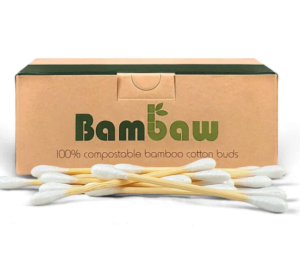In our previous article you have looked into the basics, understood the idea of composting and the benefits composting has towards the environment. In this article, let us explore UK policies, pros & cons and other details about composting.
How the UK is Dealing with Composting
The UK government has been taking steps to encourage and support composting practices in the country. In 2018, they introduced a consultation on their Resources and Waste Strategy, which aimed to promote sustainable waste management practices.
One of the key initiatives that have come out of this strategy is the introduction of separate food waste collections for households across England by 2023. This will help divert food waste from landfills and increase the availability of organic material for composting.
In addition to this, local councils around the UK are also offering subsidised home compost bins, making it easier for individuals to start their own composting systems at home. Schools are also being encouraged to implement composting programs as part of their curriculum.
Furthermore, there are several community-led projects promoting urban gardening and community gardens where residents can collectively manage food scraps through communal compost heaps.
While still facing challenges such as lack of infrastructure or space for large-scale industrial-level composting facilities; The UK is taking significant steps towards creating a more sustainable future through increased awareness and encouragement towards individual responsibility when it comes to managing organics wastes.
UK Composting Steps and Policies
In the UK, composting is a great way to turn food and garden waste into nutrient-rich soil. To encourage more people to compost at home, there are several steps and policies in place.
Local councils offer subsidised or free compost bins to residents. They also provide information on how to get started with composting and what can be added to the bin.
There are also regulations in place regarding what can and cannot be composted. For example, meat, bones, dairy products and fats should not be included as they attract pests or rodents. Instead, focus on adding fruit & veggie scraps along with paper products like shredded newspaper.
The UK government has also set targets for reducing waste sent to landfills by introducing initiatives such as separate food waste collections from households.
These steps show that the UK is dedicated towards promoting sustainable practices like composting which can benefit both individuals and the environment alike.
What Can Be Done to Improve Composting in the UK?
Composting is an environmentally friendly and sustainable way to manage waste. However, it requires effort, time, and knowledge to get things right. In the UK, composting has gained increased popularity in recent years as more people become aware of its benefits.
To improve composting in the UK, there are several measures that can be taken. Educating people about composting is crucial. This includes teaching them what materials can be composted and how to create a healthy pile through balancing carbon-rich brown matter with nitrogen-rich green matter.
Local councils could provide incentives for households that participate in home composting schemes. These could take the form of reduced landfill fees or rebates on garden waste collection services.
Businesses should also play their part by reducing food waste through better supply chain management practices and donating excess food to charities rather than throwing it away.
Investing in research and development of new technologies that make composting easier for households and businesses alike would greatly benefit the industry.
By taking these steps towards improving composting practices in the UK we can all contribute towards creating a more sustainable future for our planet.
What to compost
When it comes to composting, knowing what to compost is just as important as knowing how to do it. Composting involves breaking down organic matter, so you want to make sure that the materials you add are biodegradable and don’t contain any harmful chemicals.
First things first: all fruit and vegetable scraps are great for composting. This includes things like banana peels, apple cores, carrot tops, and onion skins. Coffee grounds and tea bags can also be added.
Eggshells are another excellent addition because they provide calcium to your soil while reducing acidity levels. Just be sure to crush them up before adding them in.
Grass clippings and fallen leaves from your yard are also ideal for composting. However, avoid using grass clippings from lawns treated with pesticides or herbicides.
Other garden waste such as flowers, pruning scraps, and weeds can also go into your compost pile. But make sure you remove any seeds or diseased plants beforehand.
In general, anything that was once alive can be added to your compost bin – except for meat products (which attract pests), dairy products (which can create unpleasant odours), and pet waste (which carries pathogens).
By following these guidelines on what to add (and not add) in your compost pile will help ensure a healthy environment for beneficial microorganisms which contribute greatly towards creating nutrient-rich soil over time!
Pros & Cons of Composting

Pros Of Composting
1. Waste Reduction: Composting diverts organic waste from landfills, reducing the amount of waste sent for disposal and minimising methane emissions, a potent greenhouse gas.
2. Nutrient-Rich Soil: Compost adds essential nutrients to the soil, enhancing its fertility, improving plant growth, and reducing the need for chemical fertilisers.
3. Soil Enrichment: Compost improves soil structure, increasing its water-holding capacity, enhancing drainage, and preventing erosion.
4. Carbon Sequestration: Composting sequesters carbon in the soil, helping to mitigate climate change by reducing the concentration of greenhouse gases in the atmosphere.
5. Sustainable Gardening: The use of compost improves the health and productivity of gardens, reducing the reliance on synthetic pesticides and promoting natural pest control.
6. Water Conservation: Compost improves soil’s water retention capacity, reducing water runoff and the need for excessive irrigation.
7. Cost Savings: Composting reduces the need for chemical fertilisers, leading to cost savings for gardeners and farmers.
8. Environmental Education: Composting provides an opportunity to educate individuals and communities about waste reduction, recycling, and the importance of soil health.
9. Community Building: Composting initiatives can bring communities together, fostering collaboration, shared responsibility, and a sense of environmental stewardship.
10. Circular Economy: Composting completes the natural cycle of organic materials, transforming waste into a valuable resource for future use.
Cons of Composting
1. Odour and Pest Issues: If compost piles are not managed properly, they can emit odours and attract pests. Proper layering, moisture control, and avoiding certain materials can help mitigate these issues.
2. Time and Effort: Composting requires regular maintenance, turning the pile, monitoring moisture levels, and balancing the composting materials. It may require time and effort to manage the composting process effectively.
3. Space Requirements: Composting may require space, particularly for backyard composting methods. Urban dwellers or those with limited outdoor areas may face challenges in finding suitable composting solutions.
4. Incomplete Decomposition: Some materials, such as woody or fibrous items, may take longer to decompose fully, requiring additional time and patience.
5. Learning Curve: Achieving optimal composting results may require some knowledge and understanding of the composting process, including the right balance of green and brown materials and proper moisture levels.
6. Limited Composting Options: In certain regions or communities, access to municipal composting programs or composting facilities may be limited, making it challenging to compost on a larger scale.
7. Potential Weed and Pathogen Transfer: Improper composting can lead to the spread of weed seeds or plant diseases if compost is not heated enough to kill pathogens.
8. Aesthetic Concerns: Some individuals may find composting bins or piles unsightly, particularly in urban or highly visible areas.
9. Winter Composting Challenges: Cold climates can present challenges for composting during winter months, as decomposition slows down significantly in low temperatures.
10. Initial Investment: While composting is cost-effective in the long run, there may be initial expenses involved in purchasing composting bins, tumblers, or other composting equipment.
It is important to note that many of the cons associated with composting can be mitigated through proper education, planning, and management. With the right techniques and a commitment to responsible composting practices, the benefits of composting far outweigh the potential drawbacks.
Tips for successful composting
Composting can seem like a daunting task, but with the right tips and tricks, it can be an easy and successful process. Ensure that you have the right balance of carbon-rich browns (such as leaves or twigs) and nitrogen-rich greens (such as food scraps or grass clippings). This will help to create a balanced ecosystem within your compost bin.
Make sure to turn your compost regularly. This helps to increase airflow and speed up the decomposition process. You should aim to turn it at least once a week for optimal results.
Another helpful tip is to keep your compost moist but not too wet. A good rule of thumb is that it should feel like a damp sponge when squeezed.
It’s also important to be mindful of what you are adding to your compost bin. Avoid adding meat, dairy products or oily foods as these can attract pests and slow down the decomposition process.
Patience is key! Composting takes time so don’t expect overnight results. With consistent effort and attention, you’ll soon have nutrient-rich soil ready for use in your garden or potted plants!
Conclusion
As we come to the end of this article, it’s important to reflect on the information presented about composting. Hopefully, you have gained a deeper understanding of what composting is and why it’s important. You may have even learned some new tips on how to successfully start your own compost pile.
It’s worth noting that while there are certainly pros and cons to composting, ultimately the benefits outweigh any potential drawbacks. Not only does composting help reduce waste and improve soil health, but it also allows us to take an active role in reducing our carbon footprint.
If you’re interested in starting your own compost pile, remember that patience is key. Composting takes time and effort, but once you see the results of your efforts in healthier plants or a more bountiful garden harvest, you’ll know it was all worth it.
In addition, don’t forget about local regulations regarding organic waste disposal and any specific guidelines for starting a compost pile in your area. By following these policies and procedures set forth by your community or government officials, we can ensure safe and responsible practices when it comes to managing organic waste.
Whether you’re an experienced gardener or just beginning your journey towards sustainability at home through small steps like learning how to properly sort food scraps from other types of garbage – every little bit counts when it comes down to making positive changes for our environment!


[…] our next article, you can explore more about […]